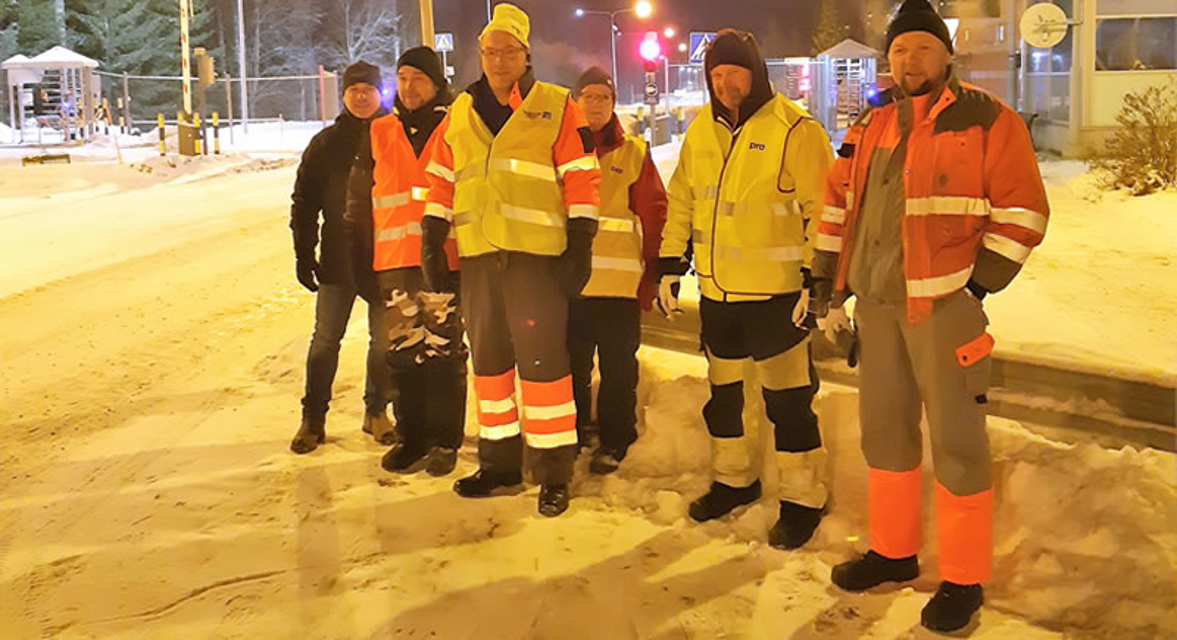We observe with great concern that labour relations in Finland continue to deteriorate.
Several unions in key manufacturing sectors are currently at loggerheads with their employers’ associations and this illustrates a significant departure from the traditionally consensus-driven approach to Finnish labour relations as previously reported. It is the result of a decentralisation that ended a 50-year history of signing nationwide agreements at confederation level that were then implemented at sector-level through collective agreements.
In the recent wave of conflicts, several unions had to resort to industrial action in an attempt to push through their demands for a pay rise and to get rid of the 24 hours of unpaid work (equal to 1.4% of the annual working hours) that were introduced as a part of the national Competitiveness Pact in 2017. The Finnish unions have calculated that the Competitivenss Pact, introduced in 2017, produced benefits for companies of close to 6 billion EUR until 2020!
Negotiations that started after the summer in 2019 have mostly failed, and a first round of industrial action was organised in December 2019 by the Finnish Industrial Union, Trade Union Pro and YTN, a group of professional and managerial academic unions that includes the two engineers' unions IL and TEK. In the mechanical forest industry, the employers responded with lock-out.
The conflicts have continued into 2020 and this is the current state of play:
- The technology industries: An agreement was signed for blue-collar workers by the Finnish Industrial Union. It was meant to be an opening agreement.
- Pulp & paper (chemical forest industry): Some 9,000 workers at Finnish paper mills started a three-week strike, including overtime bans, from 27 January until 17 February. The employers have announced a three-day lockout from 10 February 2020, however not as comprehensive as the strike. The Paper Worker’s Union organises the blue-collar workers and Pro the white-collar workers.
- Sawmills (mechanical forest industry): A strike for the blue-collar workers was announced by the Finnish Industrial Union from 27 January 2020 until 17 February 2020.
- The chemical industry, rubber and glass sectors: Strike actions have been postponed by two weeks by the labour minister at the request of the employers in order to give more time for negotiations. Both the Industrial Union and Pro will be on strike in this sector from 10 February 2020 for three weeks.
- The technology industries: There is still no solution for the white-collar workers organised by Trade Union Pro and the employers try to maintain the unpaid 24 hours for them. A white-collar workers’ strike is possible from 10 February if there is no agreement.
- The energy sector: Strike from 15 February 2020 until 22 February 2020 for white-collar workers announced by Trade Union Pro. The strike has been postponed by two weeks by the labour minister at the request of the employers.
Finnish unions now expect comprehensive negotiations to end the strikes that have already started and to avoid new strikes.
Luc Triangle, industriAll Europe’s General Secretary reiterated “We observe with great concern that labour relations in Finland continue to deteriorate. Fighting for stronger unions and strengthened collective bargaining across Europe within our ‘Together at work’ campaign remains as urgent as ever.”
For more information please contact collective bargaining policy adviser Erlend Hansen.

